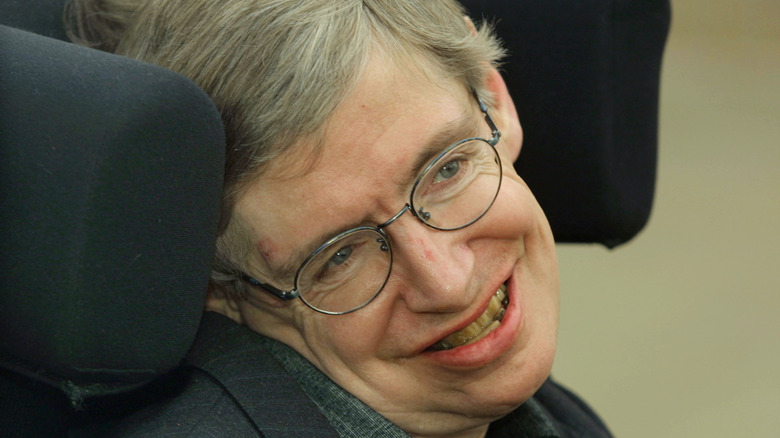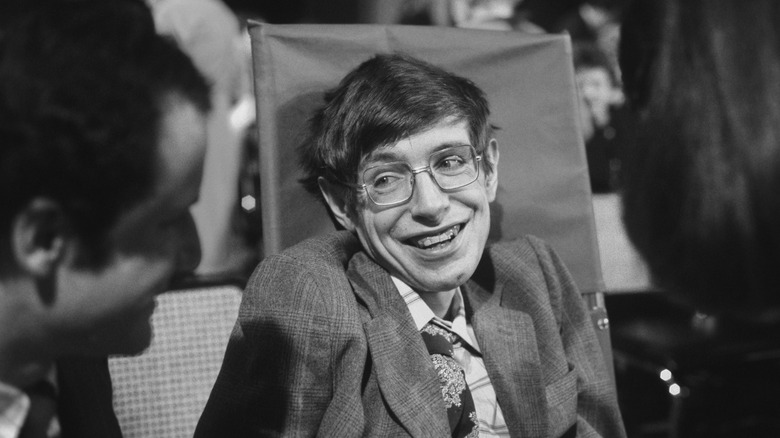Stephen Hawking's Final Act Of Kindness Happened After He Died
Stephen Hawking is one of the most celebrated minds of the 20th century. A theoretical physicist and cosmologist, Hawking was responsible for theorizing how black holes die — through a process now known as Hawking radiation – a major scientific breakthrough for which he became famous in his field. He later reached a wider audience of non-scientists when his book, "A Brief History of Time," became a bestseller.
Hawking was also a dedicated philanthropist, who over the course of his long public life championed numerous charitable causes, such as The Stephen Hawking Foundation, which was established under the scientist's direction. The foundation supports both research in the field of cosmology and those living with Motor Neurone Disease, as Hawking himself did for most of his adult life.
But the theoretical physicist's philanthropy didn't stop entirely upon his death in March 2018 at the age of 76. As was widely reported, the day of his funeral saw one final act of kindness play out: a lavish meal for homeless people which took place in a nearby church, despite Hawking's famous atheist beliefs.
A farewell feast
The details of the final act of kindness organized by Stephen Hawking and his surviving family found their way into many British newspapers in the days following his funeral in Cambridge, the university city where the theoretical physicist made his name.
As reported in the Mirror and others, on the day of Hawking's funeral his family made a donation to a local charity, FoodCycle, which feeds local people dealing with homelessness. The funds covered a sumptuous three-course Easter meal at Wesley Methodist Church, with notes on each table letting scores of diners know that their lunch was "from Stephen." The donation was sizeable enough that diners were also treated to special gifts, which Hawking also covered. The recipients reportedly gave a cheer in the late physicist's honor.
FoodCycle's regional manager Alex Collis said: "The [Hawking] family felt they wanted to do something positive to mark the day and support people in the local community who were having a tough time ... It was something that they felt Stephen would have wanted."
Why Stephen Hawking's final act of kindness matters
It is perhaps arguable that Stephen Hawking's posthumous FoodCycle donation perhaps pales into insignificance in terms of all that he gave to the world in terms of his research over the course of his long career. However, the action takes on greater significance when coupled with what has been reported as the physicist's last words before his death in March 2018. As reported by several outlets, Hawking's final words are said to be those that close the posthumously published question-and-answer volume "Brief Answers to the Big Questions," in which Hawking concludes: "There is no God. No one directs the universe."
In the context of Hawking's trenchant atheism, his continued empathy and philanthropy even at the moment of death subverts one of the most common criticisms of atheism: that without God, humanity has no set moral code to abide by. With his final act of kindness, Hawking showed that humanity is empathetic by nature, even in what he believed is a Godless universe. Similarly, the donation demonstrates that, while Hawking taught us to look to the stars, it is also important to care for the people around us.


